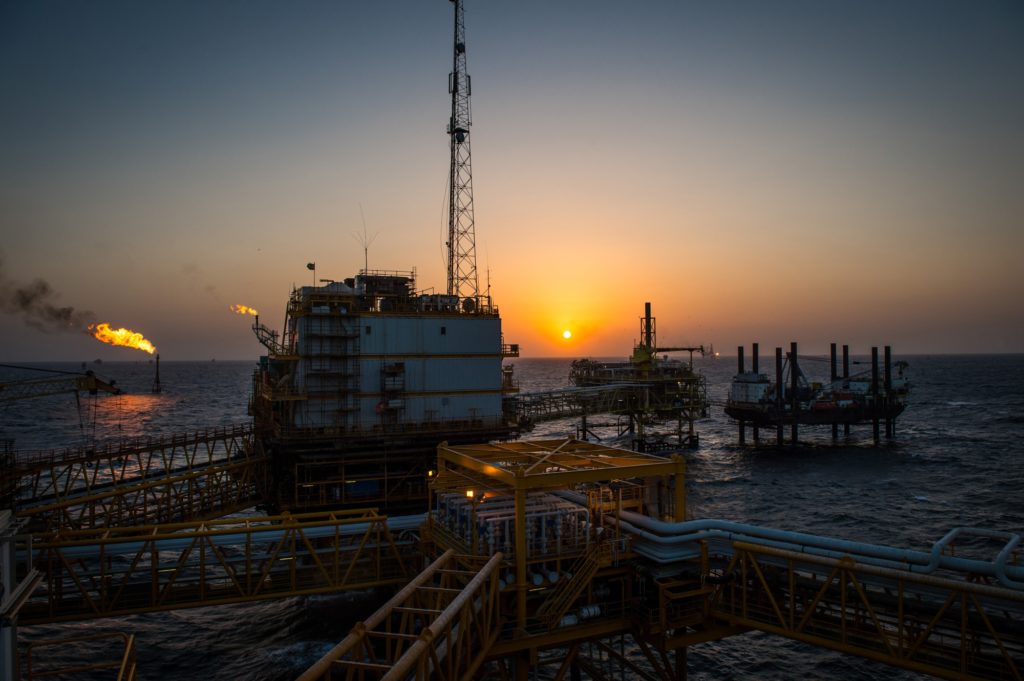
If you’re a small drugmaker with a successful diabetes treatment, but concerned you lack scale in the global market, what’s your next move? Norway’s Vistin Pharma ASA decided to hire an oil-market analyst and place large bets on the price of shipping fuels.
It didn’t work out terribly well.
After abruptly announcing last week that the head of its trading unit, former top-ranked DNB ASA oil analyst Torbjorn Kjus, was leaving the company, it revealed the business had racked up losses of 101 million kroner ($12 million). At the end of 2018, margin calls — deposits required to cover trading losses — had reached 163.5 million kroner, tying up more than half the entire company’s cash.
Vistin entered the market at a time when specialists were already struggling to make money. Many of the world’s largest commodity-trading houses fell on hard times in 2018, wrong-footed by wild swings in price spreads between oil grades, a stark reversal from the big returns of prior years.
On Tuesday, Vistin’s board called it quits and shut the oil-trading venture. The company will continue to manage the outstanding contracts until they expire at the end of 2020, but won’t enter any new bets.
Fuel Wager
After selling its opioids and tablets business in 2017, Vistin decided to enter energy trading in March. The company’s board concluded its remaining production of diabetes medication lacked scale and hired Kjus and another former DNB employee, Kenneth Tveter, to establish a new trading unit, raising 300 million kroner from investors including Oystein Stray Spetalen. They developed a strategy to take advantage of rules from the International Maritime Organization limiting the sulfur content of shipping fuel from 2020.
Vistin’s bet centered on the price difference between low-sulfur gasoil futures on the Intercontinental Exchange in London and contracts for higher-sulfur fuel oil traded in Singapore. The contracts covered a total volume of 150,000 metric tons, the company said on Tuesday.
The spread between gasoil and fuel oil is “set to blow out significantly,” possibly even more than during the “diesel squeeze” of 2008, Vistin said in third-quarter presentation material on Oct. 25. Instead, it’s narrowed significantly since early October in parallel with a drop in crude prices.
“It proved more challenging to establish this trading business than we might have initially expected,” Vistin CFO Gunnar Manum said by phone on Tuesday. “Things didn’t develop as planned, and we’ve made decisions accordingly.”
Surprise Departure
For now, Vistin will focus on its pharmaceutical business, he said. The company has more than 150 million kroner in unrestricted cash, a “very good buffer compared to the positions we’ve taken,” the CFO said.
Kjus’s resignation came as a surprise, Manum added. Kjus didn’t reply to calls seeking comment.
Kjus, who spent 11 years as chief oil analyst at DNB after working as an analyst and trader at Norsk Hydro ASA and BP Plc, said in an interview in June that it was the “perfect time to start” with Vistin’s bets. Initial wagers based on IMO 2020 fuel rules would be followed by other themes, he said.
Vistin is in discussions with Tveter about his role at the company, Manum said, declining to comment further.
Vistin isn’t the first novice to enter the oil market and fall flat on its face. In 1993, German conglomerate Metallgesellschaft AG lost more than $1.5 billion trading oil futures contracts. Other surprising forays by outsiders into the industry have proven more successful, such as Delta Air Lines Inc.’s decision in 2012 to buy an oil refinery as a hedge against rising jet fuel prices.
Recommended for you
